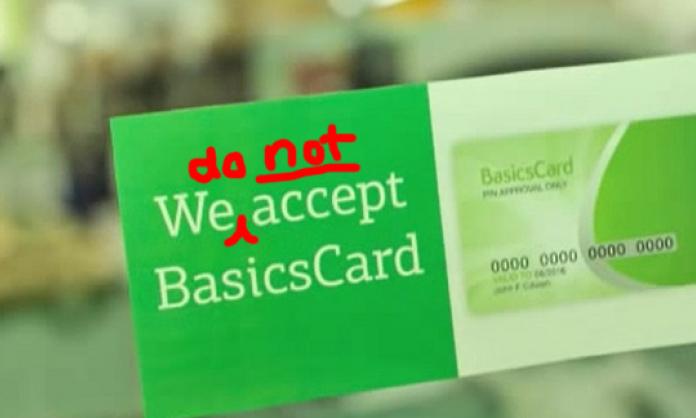The ALP has joined with the federal Liberal government to pass legislation approving a cashless welfare scheme. Under the plan, recipients will have access to only 20 percent of their entitlements in cash – the rest will have to be spent in government-sanctioned ways.
Ostensibly, the scheme is about tackling addiction: the 80 percent government-controlled portion of welfare cannot be spent on alcohol or gambling. Yet research on the new scheme’s predecessor, the BasicsCard, found that it did not improve any of the “well-being indicators” it was supposed to.
An evaluation of the program conducted by Australian National University researchers “could not find any substantive evidence of the program having significant changes relative to its key policy objectives, including changing people’s behaviours”.
Jessie Lee Robertson is a full time carer for her son Beau, a non-verbal young autistic adult. She has been his carer for 20 years, and will be affected by cashless welfare.
“I’ll only be able to access 20 percent of my income for cash needs, like school lunches and op-shopping, markets, clothing, pools, P&C contributions and that sort of thing”, she told Red Flag.
“More my concern, though, is the person that I care for has a care worker who takes him for outings, to the movies or the shops. In order for him to do that I give the care worker the amount of cash necessary for expenses for the day. I can’t give a care worker his entire welfare card: that would be pretty negligent. So that will really affect his ability to participate in the community”, Robertson said.
Currently, 12-month trials of cashless welfare have been approved only in selected areas with high participation in alcohol rehabilitation programs or high levels of violence-related hospitalisation. But in the long run, it will likely become universal.
Robertson thinks that the government is deliberately targeting areas that have high Indigenous populations because it will more easily be able to get broader public support by doing so.
“It’s really easy to paint these places with the whole ‘we have to do something’ thing. They’ve already tried technical solutions in Ceduna – they have a list of banned drinkers they can’t sell to”, she said.
“So why you would try this when it’s been shown to be a failure? I guess we don’t have a lot of sympathy for these places because we’re racist, like with the Northern Territory Intervention: ‘Won’t someone think of the children?’ and all that.”
Robertson told Red Flag that cashless welfare discriminates against not just people with disabilities, like her son, but also other vulnerable groups.
“They haven’t given us the details of how it’s all going to work. The closest reference we’ve got is the BasicsCard, which had a $1,500 a day spending limit. So even if you’ve saved up more than that much money, you’re not allowed to access it.
“How would you pay for a funeral, or a car? If you have a stillborn child for example you can access a bereavement allowance, but that would be welfare controlled too. On top of cashless welfare being really racist it’s also something that will obviously hit women harder as it’s mostly women who are carers”, she said.
Why is the government doing it? “I suppose the simple answer is that the poor are not going to bludgeon themselves to death so the government has to help them with that”, she said.
Robertson has organised a protest against cashless welfare.
“We’re rallying to protest on Saturday 21 November, 1pm at Town Hall in Sydney. And marching to Martin Place. We need to show solidarity with Ceduna and the other trial areas, and show the government there’s some opposition to this”, she said.








